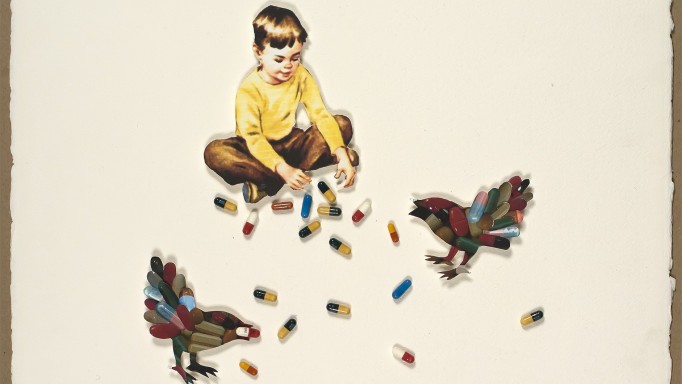Many people with HIV experience anxiety or depression. While occasional worry and low mood are a normal part of life, living with the virus can lead to persistent changes in mental well-being. Uncertainty about the future, fear of worsening illness or death, loss of loved ones, survivor’s guilt, concerns about disclosure, worry about transmitting HIV, stigma and discrimination, financial stress, chronic pain and difficulty performing daily activities can all contribute to temporary or chronic anxiety and depression.
Anxiety can range from mild apprehension or unease to a disabling sense of dread or impending doom that interferes with daily life. Clinical diagnoses include generalized anxiety disorder, panic disorder, obsessive-compulsive disorder, social anxiety disorder and phobia-related disorders. Some people with anxiety disorders also have post-traumatic stress disorder (PTSD).
Depression, likewise, can range from feeling blue to persistent depressive disorder (dysthymia) to more severe major depressive disorder. Clinical depression is distinct from temporary sadness or grief related to an event such as the death of a loved one. Bipolar disorder (formerly called manic-depressive disorder) is characterized by mood swings from depression to euphoria.
People with chronic illnesses—including HIV—are more likely to experience anxiety and depression compared with the general population. Gay men, women and Black people appear to be at greater risk for depression. Feelings of fear, hopelessness or low self-esteem can lead to poor treatment adherence and worse disease outcomes.
What’s more, some people with anxiety or depression may seek relief through excessive use of alcohol or drugs, which can have detrimental effects on mental and overall health. In addition, some people may cope by engaging in risky sexual behavior.
On the other hand, starting antiretroviral treatment, achieving good adherence and maintaining an undetectable viral load can help alleviate concerns about disease progression and HIV transmission. And for HIV-negative people worried about acquiring the virus, using pre-exposure prophylaxis (PrEP) can allay the fear.
Managing Depression and Anxiety
If you are experiencing persistent anxiety or depression, it may be time to seek help. If you have thoughts about self-harm or suicide, seek help right away. Call 988 for the national suicide and crisis lifeline, available 24 hours a day. Many cities also have local suicide hotlines.
Symptoms of anxiety may include:
- Restlessness or agitation
- Dizziness
- A racing or pounding heart
- Shortness of breath
- Chest pain or a sensation of choking
- Sweating or flushing
- Muscle tension or tremors
- Headache, stomachache or other unexplained pain
- Difficulty concentrating
- Uncontrollable worry or negative thoughts
- Difficulty falling or staying asleep.
Symptoms of depression may include:
- A persistent sad or blue mood
- Irritability
- Excessive crying
- Loss of interest and inability to find pleasure in most activities
- Decreased libido, or lack of interest in sex
- Changes in appetite or unintentional weight gain or loss
- Insomnia
- Fatigue, unusual tiredness or low energy
- “Brain fog,” or poor concentration and impaired cognition
- Moving, talking or thinking more slowly
- A sense of hopelessness, worthlessness, shame or guilt
- Recurrent thoughts about death or suicide.
If you are experiencing these or other symptoms, start by talking with your primary health care provider or HIV doctor about getting a psychological evaluation and treatment, if needed. You may be referred to a psychiatrist, psychologist, clinical social worker or other mental health specialist. AIDS service organizations may also be able to make such referrals.
Diagnosing anxiety or depression involves ruling out physical problems that can affect mood—for example, a low testosterone level or an underactive thyroid gland. Uncontrolled HIV and opportunistic infections that attack the brain can lead to changes in mood and behavior. Medication side effects may also play a role. The antiretroviral drug efavirenz (Sustiva, also included in the Atripla combination pill), in particular, can cause neuropsychiatric symptoms.
Talking with a psychologist or other trained therapist may be enough to improve your mood. Evidence-based psychotherapy approaches for depression include cognitive behavioral therapy and interpersonal therapy. Many people also find group therapy or peer support groups to be helpful.
Persistent anxiety and depression are often caused by chemical imbalances in the brain, and medications may be needed to manage them. A variety of drugs that work in different ways are used to treat depression. Many of these affect neurotransmitters that neurons in the brain use to communicate. One commonly used drug class is selective serotonin reuptake inhibitors (SSRIs), such as fluoxetine (Prozac). Atypical antidepressants include bupropion (Wellbutrin) and trazodone. SSRIs and related drugs are also used to treat anxiety disorders, as are benzodiazepines such as diazepam (Valium). Some studies suggest that psychedelic drugs, such as psilocybin or ketamine, could play a role in managing anxiety and depression.
Antidepressants can take time to start working (typically four to eight weeks), and they are not equally effective for everyone. However, many people who do not respond to one medication will do well on another. It may take considerable trial and error to find the right regimen, but in a majority of cases, depression can be successfully treated. Combining medication and talk therapy typically offers the best results.
Antidepressants can cause side effects, including drowsiness, insomnia, dry mouth, constipation, weight gain and changes in sexual desire and function. Some people report a “flat” mood or decreased ability to feel normal emotions. What’s more, certain antidepressants can interact with HIV medications, so it’s important for your providers to work together to find a safe and effective regimen.
In addition to psychotherapy and medication, you can take other steps to relieve anxiety and improve your mood, including exercise, deep breathing, meditation or prayer, eating a healthy diet, limiting alcohol and drug use, getting enough sleep, engaging in enjoyable activities and spending time with others. Studies show that people with HIV who have little social support are more prone to anxiety and depression and these, in turn, can worsen social isolation.
Last Reviewed: January 7, 2025














